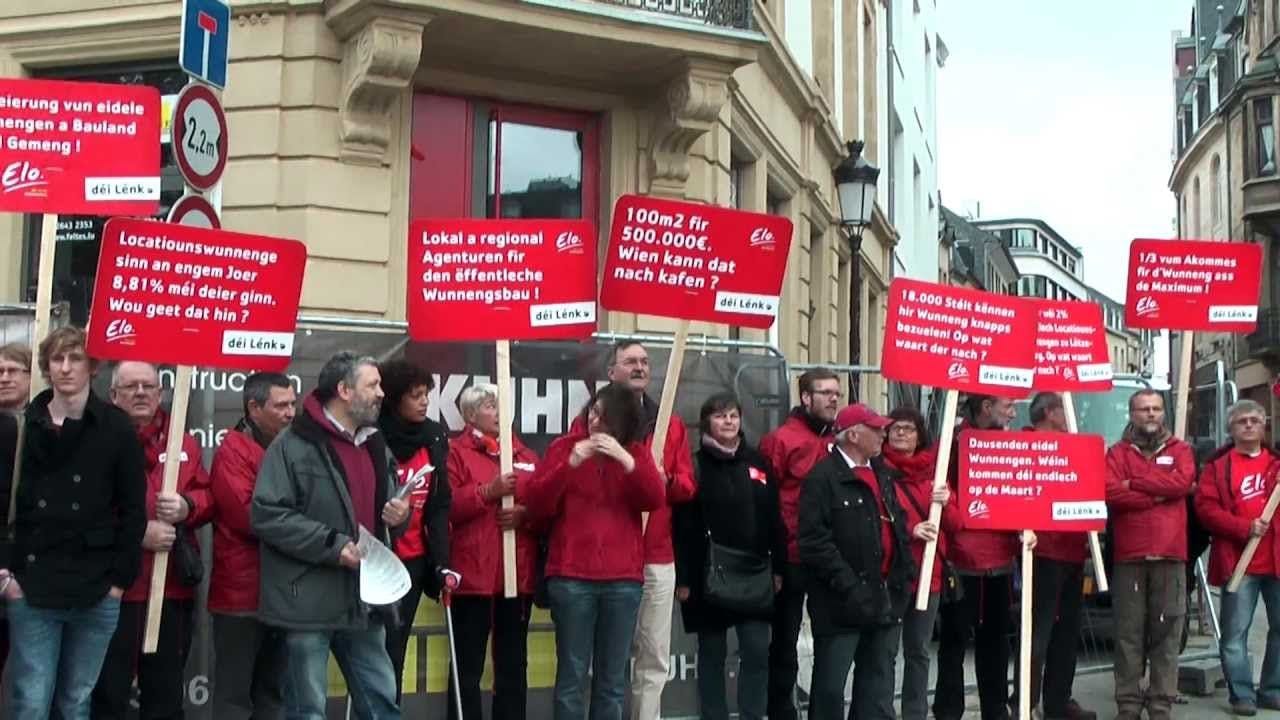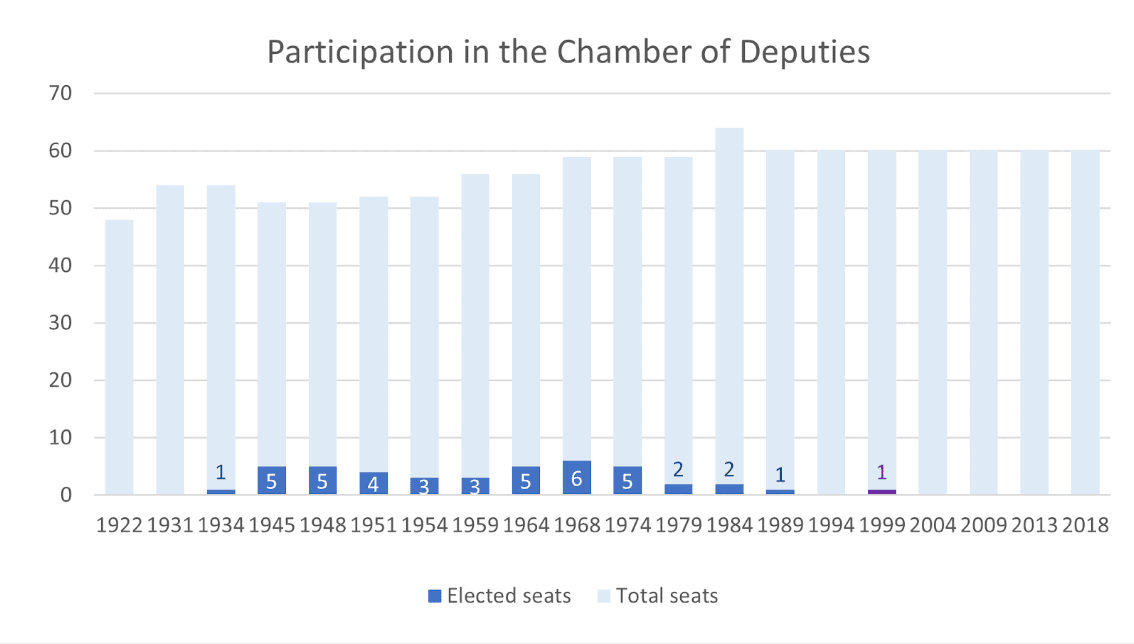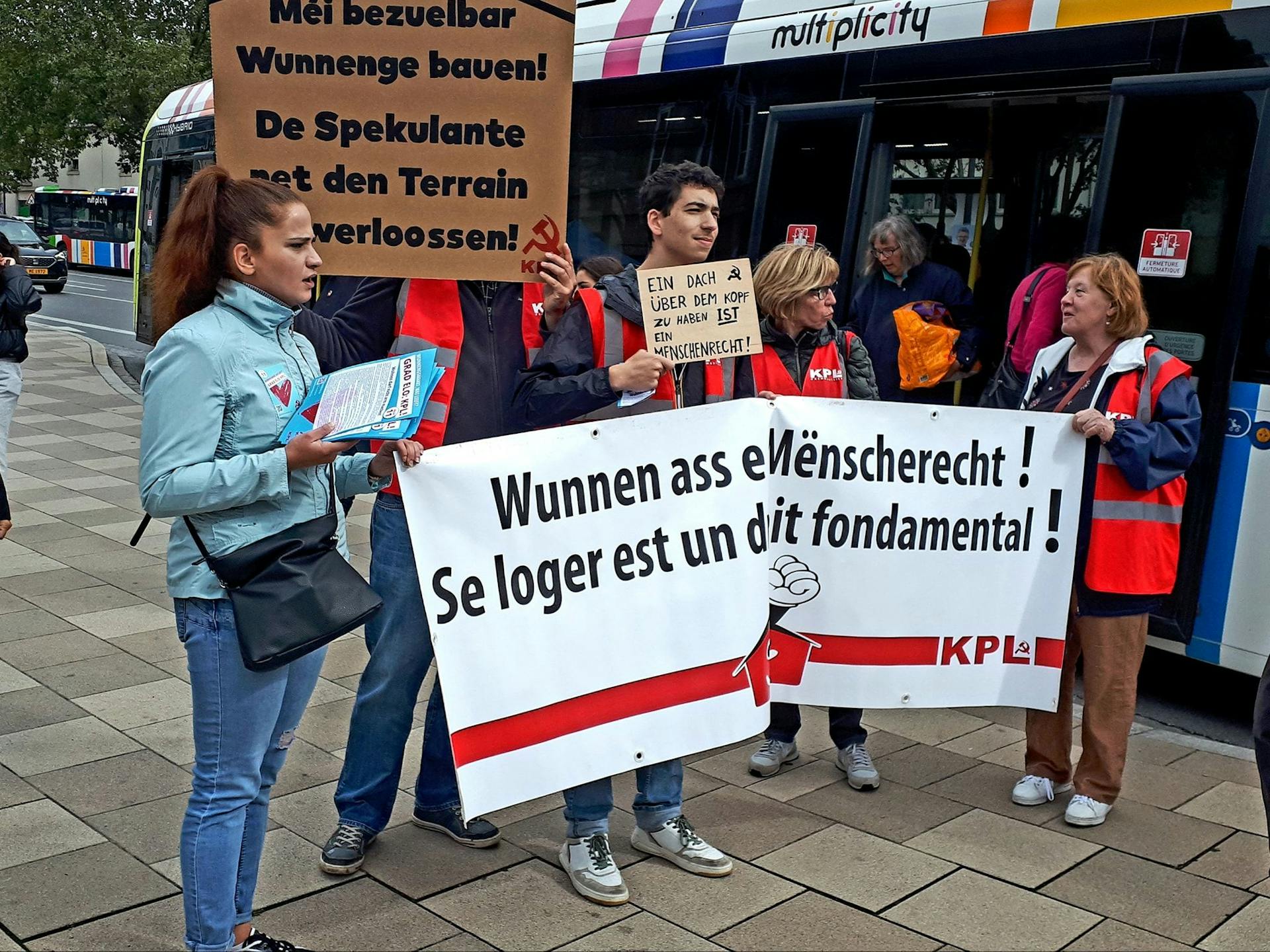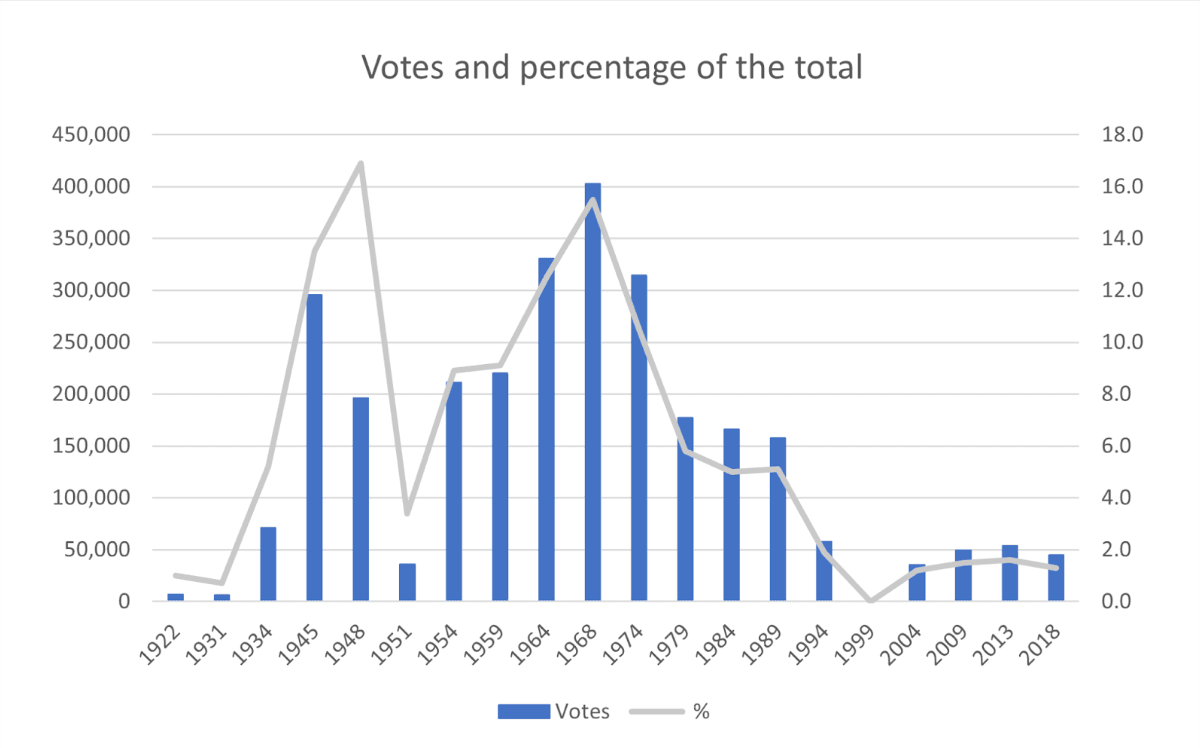
Communist Party in Luxembourg — Kommunistesch Partei (KPL)
This article delves into several critical aspects of the Communist Party of Luxembourg, including its organizational structure and representativeness, influential leadership figures, the party's current political stance.
The Communist Party of Luxembourg holds a storied legacy in the country's political landscape, dating back to its inception in 1921. Emerging from a schism within the socialist party (today's LSAP), the KPL is one of the oldest political parties in Luxembourg.
Communist Party at a glance
Firmly situated on the radical left of the political spectrum, it is mainly an anti-capitalist, far-left ideological party. The KPL asserts that Luxembourg's path to a socially just, democratic, and socialist society necessitates the abolition of private property held by banks and corporations.
Despite its rich history, the KPL faced significant electoral challenges. In the most recent general elections, the party secured 0.64% of the votes, failing to secure Chamber representation. This underscores the formidable electoral hurdle the party has long grappled with, having not held a parliamentary seat for several decades.
The Luxembourg KPL is not currently a part of the governing coalition, and as a result, none of its members hold ministerial positions in the current government.
Political Guide

Structure and representativeness
The Communist Party of Luxembourg (KPL) maintains a level of secrecy regarding its membership figures, making it challenging to gauge the size of its ranks accurately. To estimate its size, one must consider the party's impact and its electoral performance, which indirectly reflects its appeal to the public.
In the past four legislative elections, the KPL has consistently garnered less than 2% of the vote, placing it in the eighth position in the last two elections and the seventh position in the preceding two. In 2023, they have a 10th spot, with 24,044 of the votes. This modest electoral performance suggests a limited level of popular support.
The inner life of a party
At its core, the KPL operates through a hierarchical framework comprising several committees



Electoral system divides the country into four constituencies. The number of seats allocated to each constituency is proportional to its population
People and influence in the party
Leaders of the party



Other key members of the party




The Luxembourg KPL is not currently a part of the governing coalition, and as a result, none of its members hold ministerial positions in the current government. Notably, the last time the party had members in government as ministers was during the post-World War II period, within the National Unity government from 1945 to 1947.

In the following chart, we can see the number of seats KLP has had over history and it’s important to consider that in 1999, KPL members were nominated on The Left lists, so no separate KPL list existed.
The KPL is not represented in the Chamber of Deputies or European Parliament. The party has faced significant challenges in securing parliamentary seats for an extended period.
These seats are divided among member countries based on their population size.
KRL's current political stance
On the political spectrum, the Communist Party of Luxembourg (KPL) firmly positions itself at the extreme left, advocating for the abolition of capitalism. The Communist Party of Luxembourg (KPL) distinguishes itself from other parties in Luxembourg by refraining from making pre-election promises it cannot fulfill afterward.
The party and its cornerstones
According to the KPL, the root causes of current issues in the country lie in a political system that primarily serves the interests of a small minority of property owners. They argue that government decisions, often backed by most other parties in the Chamber of Deputies, align with the requirements of the European Union and NATO.
Party views visualization

Communists regularly organize and support rallies and protests, coming out with placards and slogans like "Homes are for people, not for profit." They are associated with the largest workers' union in the country too, OGBL.
Political program
The KPL program is extensive, you can see the complete program on the KPL website, but for your convenience, we provide you a direct download link of the program and a condensed summary of their key priorities.
In these elections, the KPL emphasizes the importance of electing parliamentarians who understand and address the concerns and issues faced by the people of the country, focusing on real alternatives. The party claims to recognize the most pressing problems faced by individuals and offers suggestions for solutions.
The KPL asserts that democracy should extend beyond political boundaries and into the workplace. They argue that while salaried workers create wealth in factories, factory owners determine their fate. They view the profit-driven capitalist market economy as increasingly detrimental to the working classes, humanity as a whole, and the environment.
The KPL proposes several measures to enact this change, including the nationalization of large enterprises, banks, and strategically important economic sectors, and the creation of a state investment fund that consolidates state-owned enterprises and investments in private industrial and service companies. They also seek to revitalize the industry and craft sectors while dismantling the financial center.
The KPL Luxembourg party recognizes the adverse effects of the capitalist crisis and government policies on people's daily lives. Rising inflation, expensive food, and steep energy price hikes have led to a decline in real wages and increased difficulties for a significant portion of households, with one in six facing poverty.
The KPL challenges the capitalist notion of housing as a commodity for profit, advocating instead for planned measures that eliminate housing shortages and meet the basic needs of low and middle-income earners. Their proposals include constructing 50,000 public rental apartments within ten years, implementing land speculation taxes, and creating public land reserves, among others.
The Communist Party of Luxembourg (KPL) emphasizes the need for better wages, working conditions, and workers' rights. They call for a 20% structural increase in the legal minimum wage, strict compliance with legal working hours, the introduction of a 35-hour workweek with full compensation, and various other measures to improve the rights and conditions of workers.
The Communist Party of Luxembourg (KPL) advocates for a healthy environment, energy security, and climate protection, emphasizing that these goals can only be achieved in conditions of peace and international cooperation. The party supports climate protection movements, including initiatives like "Fridays for Future," but insists that environmental and climate protection should not be subjected to the profit interests of large corporations and banks.
Their demands for a healthcare policy include:
- expanding and maintaining existing regional general medicine hospitals,
- establishing pediatric departments and medical facilities in the north and south of the country,
- transferring all private healthcare facilities to the public sector,
- expanding outpatient care and improving various medical services.
The Communist Party of Luxembourg (KPL) promotes a foreign policy centered on peace and cooperation. They criticize the increased militarization of Luxembourg, driven by NATO's demands for higher military spending among member states.
Party representation
The Communist Party of Luxembourg (KPL) primarily represents voters with extreme left-wing ideologies who oppose capitalism and believe that a socially just, democratic, and socialist society can only be achieved through the abolition of private property held by banks and corporations.
The party experienced its peak popularity in the three decades following World War II. However, its influence waned over time, with the party only securing two seats in the Chamber of Deputies in the 1979 and 1984 elections, and just one seat in subsequent elections.
Electorate demographics
The 1984 election was the last occasion when the party secured seats in the chamber. However, with each new election, they are presented with fresh opportunities to regain a presence in the chamber.

Today, the KPL Luxembourg party faces significant challenges in attracting new followers. In the 2018 legislative elections, they obtained a modest 1.78% of the votes, distributed relatively evenly across geographic regions. Notably, they achieved a slightly higher representation in the southern district with 1.78%, compared to 0.73%, 0.66%, and 0.79% in the central, eastern, and northern districts, respectively.
While the KPL's historical significance cannot be denied, its appeal has diminished over time, making it a niche political party primarily representing those who remain committed to extreme left-wing ideologies.
| KPL | LSAP | CSV | Greens | |
| Environment | Middle | Low | Low | High |
| Electorate | Older | Older | Older | Young |
| Trade unions | Yes | Yes | Yes | Yes |
| Secularism | Yes | Yes | No | Yes |
Communist Party (KPL) office is located in Esch-sur-Alzette
- Office location: Boîte postale 403, Esch-sur-Alzette
- Phone number: (+352) 44 60 66 29
- Official website: kommunisten.lu
Brief history of the party
Foundation and beginnings of KPL: 1921-1945
- 1921: The Communist Party of Luxembourg (KPL) was founded on January 2, as a breakaway from the Luxembourg Workers' Socialist Party in Niederkorn.
- 1922: In the parliamentary elections of May 28, KPL failed to secure seats in the Luxembourg Parliament.
- 1930: The new press organ, Arbeiterstimme, was introduced.
- 1934: KPL achieved its first parliamentary success, gaining entry to the Chambre des Députés in the June 1934 elections with Zénon Bernard. However, he was expelled in November 1934 for refusing to swear allegiance to the Constitution.
- 1935-1940: Volksstimme replaced Arbeiterstimme as the central organ until the German invasion in May 1940.
- 1940: KPL was banned following the German occupation but continued its clandestine resistance and called for union reconstruction.
- 1941: The underground newspaper Die Wahrheit (The Truth) began distribution.
- 1944: Volksstimme was published again after liberation on September 28.
Ups and downs: 1945-2000
- 1945: In the first post-World War II parliamentary elections on October 21, KPL entered the Chamber with five deputies.
- 1946: The new press organ Zeitung vum Lëtzebuerger Vollek replaced Volksstimme as a daily newspaper.
- 1968: KPL achieved its electoral peak in the December 15, 1968 elections, securing 15.6% of valid votes and six deputies.
- 1994: After a series of electoral setbacks, KPL left the Chamber in the June 12, 1994 elections, receiving only 1.6% of the vote.
- 1999: KPL participated in the formation of a new party, The Left, which attracted social democrats, socialists, and disenchanted communists. The Left secured a seat in the Luxembourg Parliament in the subsequent elections.
- 2000: In the municipal elections of Esch-sur-Alzette on April 30, 2000, The Left achieved its best electoral result, obtaining 12.8% of the vote and appointing Aloyse Bisdorff as deputy mayor.
The current stance of KPL: 2000 to nowadays
- 2004: After internal tensions, The Left dissolved, leading KPL to contest the June 13, 2004 parliamentary elections independently. It received its lowest-ever electoral result at 0.9%.
- 2005: A faction of KPL members formed the dissident party Rotfüchschen (Red Foxes) after three members were blamed for the electoral failure.
- 2011: KPL gained municipal mandates in several southern towns, including Differdange, Esch-sur-Alzette, and Rümelingen, in the municipal elections.
- 2017: KPL lost its seat in Esch-sur-Alzette during the municipal elections but eventually entered a Schöffenrat government with the Social Democratic LSAP in Rümelingen.
- 2013: KPL failed to secure parliamentary representation in the early elections, receiving 1.6% of the vote.
- 2019: KPL remained a minor political party in Luxembourg, continuing its advocacy for communist ideals and progressive policies.
Frequently Asked Questions (FAQ)
Where does the Communist Party of Luxembourg stand on the political spectrum?
How did the KPL perform in Luxembourg's parliamentary elections over the years?
Has KPL ever held the position of Prime Minister in Luxembourg?
Source: kommunisten.lu, fr.wikipedia.org, en.wikipedia.org, de.wikipedia.org, elections.public.lu, luxtimes.lu, luxtimes.lu
We took photos from these sources: Communist Party website; Communist Party Facebook official page; Wikimedia